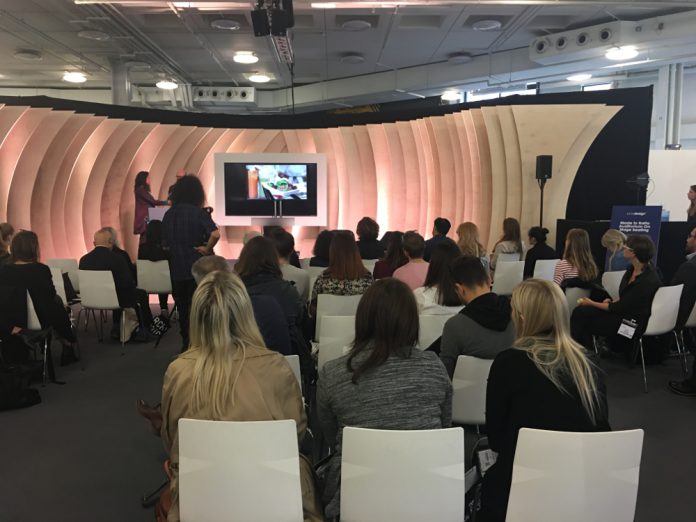In Great Britain in universities across the country there is often a bias to the left politically. This leaning to the left is in terms of political principles and theories that are explained and considered by staff and guest speakers. Heads of Departments who create lecture programmes choose carefully who they want to invite to share ideas with their students.
Working in the public sector for government funded organisations means teachers and lecturers because of their situation and lifestyle, are most likely to vote for a party on the left, such as Labour. These left of centre political parties are more likely to support central funding in education for example. These people with more politically left sympathies may think it is a good idea to increase government funding even if that means borrowing money from other countries to achieve this.
More far right conservatives may disagree. They may see more value in developing commercial industry to create jobs and tax payers who have a higher standard of living and can afford to send their children to university. These examples we can find throughout the different sections of our economy. There are often several opposing opinions on how to allocate benefits and run the NHS and so on. If a subject broadens to consider yet wider strategies on the world economy and global warming and so on, there are yet hundreds more theories and perspectives to possibly consider.
Men and women from the age of 16 onwards can attend colleges and from the age of 18 can sign up for university degrees. Currently the percentage of school levers beginning degree courses is 49%. (1)
Students also know that lecturers will be looking to mark essays with arguments that their course tutors will most likely agreed with. Viewpoints that are supported highly by the person who will be marking and grading them are bound to be important to the ambitious student.
Institutions are now more cautious than ever when selecting speakers to lecture to students of all ages attending university. Speakers that would have been given an audience in previous generations have been disallowed or disrupted from presenting, if they have been deemed in any way far right. This has given liberal and left of centre politics and theories some priority. Sometimes in the UK and in the USA speakers have faced opposition and their views will not be heard if they are found to be intolerable to the philosophy of the majority of the students.
Protesting students meant “feminist writer Germaine Greer risked being unable to give a lecture after Rachael Melhuish, women’s officer at Cardiff University, called for her to be no-platformed for her “transphobic” views.” (2)
Since 2001 a growing threat of terrorism has existed in the West. Fundamental groups that can radicalise individuals has meant universities are understandably very keen to prevent any unacceptable extremist views from indoctrinating their students. This is entirely reasonable. This also means it is even less likely that people with unorthadox and unpoular views will get invited to attend and contribute at university events.
The talks people are attending, especially on political and social studies courses, can be skewed leftwards. This influences the impressionable and often young thinkers when they are forming their first opinions. These might be on subjects like how best to live and distribute wealth or how to govern the country. When they are voting for the first few times it will been important and also have an impact on societies views in the future.
It is right that we should all be vigilant to prevent radicalisation, harm and attacks by people and extreme groups that want to use violence to achieve their political ends. We need to prevent people with bigoted and abusive views from raising their profiles and spreading toxic opinions.
However this needs to be balanced by the need to respect the difference of opinion from more alternative and possibly far right thinking politicians. Speakers with different ways of creating wealth, health and prosperity need to be considered appropriate and their view then need to be discussed in order to provide an open minded and free thinking education.
In America Aaron Hanlon at NBC writes recently that “We can continue to instill in our students the importance of free expression, and we can encourage them to use that freedom to relentlessly correct the record of mischaracterizations of who they are and what they stand for.” (3)
It seems the best conclusion is to call for respect and tolerance by all adults giving an audience to those who differ greatly from there own. It is in this environment of appreciating very different and divisive views that stimulating and thought provoking discussion can take place afterwards.
We all need to encourage traditional debating skills and the exchange of ideas between students. Creating an environment of open communication, from all parts of the political spectrum, will ensure we keep our learning centres lively and free places. We need ‘including’ and ‘questioning’ focused universities, that do not disinvite and censor progressive thinking, to construct a civilised society, ready to meet the demands of a challenging and technologically driven world.
(1) ‘Almost half of all young people in England go on to higher education’ Richard Adams, The Guardian, 28 Sep 2017 https://www.theguardian.com/education/2017/sep/28/almost-half-of-all-young-people-in-england-go-on-to-higher-education
(2) ‘Ministers plan fines for universities which fail to uphold free speech’ Nicola Slawson, The Guardian 19 Oct 2017 https://www.theguardian.com/education/2017/oct/19/ministers-plan-fines-for-universities-which-fail-to-uphold-free-speech
(3) ‘Are liberal college students creating a free speech crisis? Not according to data.’ Aaron Hanlon, Think website for NBC news, 22 Mar 2018 https://www.nbcnews.com/think/opinion/are-liberal-college-students-creating-free-speech-crisis-not-according-ncna858906

